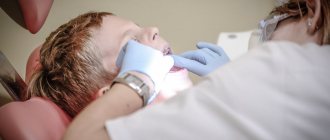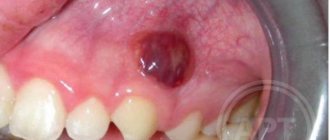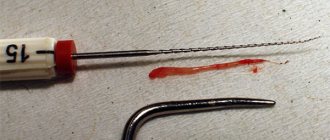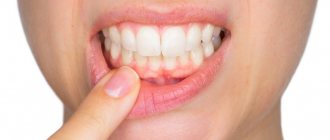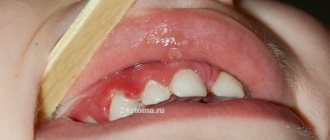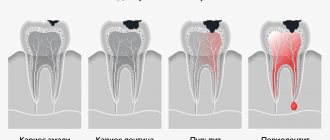- home
- What is important to know?
Dentophobia - what is this phenomenon? Each of us has encountered a situation in life when acute pain simply forces us to see a dentist. After all, as you know, self-medication or putting off visiting a doctor can lead to serious health problems.
Almost everyone is familiar with the fear of dental procedures. Some people are afraid to go for the first time, not knowing what sensations they will experience, while others still remember the sad experience of visiting a clinic where a person felt pain. What to do? How to cope with your emotions and adequately accept the fact that you need to cure your tooth?
Children's fear of the doctor
Many people know that we acquire all fears deep in childhood. Why is a child afraid of the dentist? The very appearance of a man in a white coat, with a large number of scary, incomprehensible instruments and instruments already inspires fear. His phobia can be affected by the fact that the baby sees how his mother or father are worried about him, or in the clinic itself the child can hear the crying of other children. The buzzing sounds of dental instruments will also frighten him. How to prepare a child and instill in him from childhood that dental treatment is not at all scary?
- The right choice of specialist. Parents should choose a clinic with positive reviews, a dentist with extensive experience who knows how to find an approach to each child. Often, the child, seeing the “kind aunt,” begins to smile and the fear of the dentist goes away.
- Positive attitude. It is necessary to explain to the child that after visiting the doctor he will only feel better and his teeth will not hurt. It is worth arguing why every child should visit the dentist and promptly treat caries or remove a diseased tooth.
- Don't say unnecessary words. You cannot say the words “scary”, “don’t be afraid, everything will be fine” in front of him. After hearing these phrases, the child, without even knowing what dentistry is, will begin to be afraid of it on a subconscious level.
- Make doctor visits a game. Invite your child to play as a doctor who treats his patient’s teeth, show that it’s not scary. It is also possible that you will promise to buy him something he wants (a toy) after the baby’s tooth is cured.
- Showing a clear example. You can give your child an example of his friends who bravely went to the dentist. Or, as an example, describe the situation of how you treated your teeth. Tell your child about the positive experience of receiving a dental procedure.
If every mom and dad follow these rules, then the process of visiting the dentist will be more enjoyable for both the baby and the parents themselves. And, as a rule, childhood fear will not develop into dental phobia at a conscious age.
Why is it not scary to treat your teeth at YuliSTOM?
Yulistom: everything is official and transparent
Treating your teeth with us is not scary, but safe and even useful. Our dental clinics employ experienced doctors who have undergone multiple professional retrainings, we have transparent prices, licensed activities and an agreement with each patient, in which we undertake to do everything efficiently and professionally. Our place is always clean and tidy, our equipment is state-of-the-art, and our customer service is European-style. We work every day, without lunches or weekends, and you can make an appointment with a dentist right now (online). Our clients willingly take advantage of our lucrative promotional offers and discounts, which is why you can find a lot of reviews about YuliSTOM on the Internet.
Take courage to come to Yulistom with your problem. We promise that we will do everything possible so that the second time you come to our clinic without any feeling of fear and anxiety.
Sincerely, the entire team of dentists at the YuliSTOM clinics (St. Petersburg)
Moscow Zvezdnaya metro station, Danube Avenue, 23
How to learn to overcome the fear of visiting the dentist?
The approach to overcoming fear of the dentist in an adult is slightly different. Here no one will take you by the hand or promise to fulfill your wishes for visiting the dentist. At a conscious age, a person is left alone with his fear. How to admit to myself that I am afraid to treat a tooth and how to deal with it?
There are signs that can help you determine whether you have a dental phobia or not. Dentophobia manifests itself in postponing a visit to the doctor, even in case of acute pain. The person tries to cope with the situation with painkillers. Blood pressure rises and pulse increases. Cases of loss of consciousness in the dental chair. Panic attacks at the sight of a dentist and dental equipment.
Firstly , if you are very nervous before the procedure, you should drink a sedative (valerian, motherwort). This will help get rid of panic attacks, dizziness, excessive sweating, rapid heartbeat, and high blood pressure.
Secondly , you should warn your doctor about your fear so that he can treat you with the utmost care and caution.
Thirdly , choose exactly the clinic and the dentist that evokes only positive emotions in you. Talk to your friends, hearing good feedback from someone you trust, the fear will gradually go away.
Fourth , during the dental procedure, be distracted by something else. Many clinics turn on music or TV so that the patient can relax.
Fifthly , do not forget that you can always use anesthesia, which will help you survive the procedure with the easiest sensations and without pain.
Often a person is afraid to go to the dentist because of the fear of death after anesthesia, as there are cases of an unexpected reaction of a person to a medication, resulting in anaphylactic shock. In order to reassure yourself, you need to get tested for allergies to painkillers. After which, having seen that everything is in order with you, you can calmly go to the dentist.
How does a dentist help fight dental phobia?
For a dentist, dental phobia is a problem no less serious than for a patient: it interferes with effective treatment and prevents proper dental care. A good doctor will assess the severity of the phobia in advance and will make every effort to help the person cope with the fear. Dentistry itself is now developing along this path: patients are offered comfortable treatment methods that reduce not only pain, but also the level of stress. For this use:
- relaxing soundtrack. This could be soft, calm music or sounds of nature;
- distraction: the ability to watch TV, films during the reception;
- methods of psychological work with the patient. Sometimes a smile, light conversation or reassurance is enough to immediately reduce the level of fear. In other cases, the patient may be reassured if the doctor tells him exactly what he is doing or how much time is left until the end of the procedure.
Treatment can be adjusted to simply remove the most frightening aspects. If a person is afraid of the sound of a drill, chemical or ultrasonic methods, or simply “quieter” equipment, can be used to prepare teeth. If the phobia is associated with the smell of drugs, they select drugs that lack it or prepare them at a distance from the patient so that he does not feel them. You can almost always find an acceptable treatment option. The main thing is to contact your doctor and try to stop being afraid of the dentist.
What kind of pain relief do we use?
In the dental clinic Restoration, treatment is based only on the highest quality and modern drugs that meet the quality guarantee. We use:
- general anesthesia is a state when your consciousness is turned off and you do not feel pain (sleep);
- long-term sedation - a state of light sleep in which you will feel relaxed and light;
- sedation with nitrogen - oxygen - the patient is awake and conscious, but does not feel pain;
- local anesthesia – reduction of tooth sensitivity.
The patient is an active party in the treatment process!
Every patient should be aware of their fundamental rights when seeking dental care. Article 20 of the Federal Law of the Russian Federation “On the fundamentals of protecting the health of citizens in the Russian Federation” tells us that before the procedure of medical intervention, every person has the right to familiarize himself with the possible consequences after treatment, with methods of providing assistance, after which he gives his written consent to carry out those or other procedures.
Also, every person has such rights as the right to freely choose a specialist, the right to maintain medical confidentiality. The dentist should not disclose information about the patient’s health status to other persons.
If a patient discovers that a specialist’s service was poorly performed, he may demand that the deficiencies be corrected free of charge, a reduction in the price for the procedure provided, or a free repeat dental procedure. The consumer will be able to reimburse all funds spent on a poor-quality procedure, demand legal expenses, compensate for moral damage caused, and losses associated with outside care. He can also reimburse the money that he was forced to spend on purchasing medications.
The patient can present his demands during the provision of the service or during the period of validity of the guarantee for the dental procedure. If the clinic does not provide any guarantees, then within two years from the date of receipt of the medical procedure.
What is the cause of fear?
Why are people afraid of visiting the dentist? The reasons may be different:
- Fear acquired during life
is formed against the background of negative experiences of past visits to the doctor. This is the most common case. - A phobia generated by imagination
is based on far-fetched fears: stories from friends, things seen in movies, etc. - Hereditary fear
is an attempt to avoid pain in any of its manifestations. The desire to protect ourselves is embedded in us at the genetic level: the mouth is a sensitive part of the body, and therefore it seems to a person that any invasive manipulation in the mouth will be very painful.
A psychotherapist will help you get rid of severe dental phobia: you will be able to overcome the pathology only after hard work on yourself.
According to statistics, only every fifth person treats visiting the dentist as calmly as going to the cinema or the hairdresser. So what should you do to visit a specialist without fear?
Comfort during treatment
In our clinic you will understand that dental treatment is not a scary procedure, but a completely pleasant process. Restoma dentistry guarantees you:
- Friendly and respectful attitude towards each client;
- A detailed story about all types of dental procedures;
- Quality conversation. We are ready to answer any of your questions!
- Acceptable prices;
- Comfortable pastime. You can be distracted by watching an interesting movie on a modern TV monitor.
- Guarantee after undergoing a dental procedure.
- Receiving competent recommendations for further oral care.
Our clinic specializes in a wide range of services, namely:
- Computed tomography of teeth
- Prosthetics (crowns and implants)
- Teeth whitening
- Sealing
- Treatment of caries, pulpitis, periodontitis
- Installation of braces, retainers, aligners
- Tooth extraction
- Bone grafting
- Surgery
If you experience pain or discomfort while eating, come to the Restoma clinic, Moscow. We can quickly and competently solve your problem, and also convince you that dental treatment is great! We are waiting for your call by phone or online to make an appointment!
The dentist answered the most common questions
What could be more ordinary than brushing your teeth?
It would seem nothing, however, this activity also raises questions.
Do you need mouthwash and dental floss?
How can you tell if your dentist is pushing unnecessary procedures?
Why is visualization of work quality important?
Users of Apteka.ru asked about this, and their questions were answered during the live broadcast by Svetlana Gaek, dentist, head of a network of dental clinics.
How do you know that your dentist is not giving you unnecessary, expensive procedures or appointments?
Ask the doctor to explain what procedures he is going to do, and if possible, take a clinical photograph so that you can see with your own eyes exactly how the tooth is damaged.
Make sure you understand the treatment process. Of course, something can always go wrong, so don't be afraid to tell your doctor about it and perhaps come for an additional consultation.
Clinical photography is also very important: it is a way to monitor the treatment process at all its stages. Photography helps plan treatment and show the patient existing disorders.
Is it true that tooth decay is contagious?
No, tooth decay is not contagious. You can only become “infected” by bad habits: for example, lack of oral hygiene.
Why does a healthy tooth react to cold or hot food? Can this be cured?
This is a normal reaction. If there is no pain that lasts for several days, then there is no reason to worry. If the pain continues, you should consult a doctor
Why do teeth change color?
Over time, the enamel wears off. In addition, teeth darken from smoking, drinking coffee, alcohol, and acidic foods.
Also, the tooth can suddenly darken if the inflammatory process has reached the nerve.
Is it necessary to remove wisdom teeth?
Wisdom teeth do not have to be removed. If they are located in the dental arch, grow straight and healthy, and do not cause inconvenience, then they do not need to be removed.
What to choose: filling or inlay?
Depending on the tooth decay. If it is destroyed by less than half, then you need to put a filling, and if more - an inlay or a crown. The location of the destruction and the price also matter: an inlay is more expensive than a filling.
Why do my gums bleed? Is it dangerous?
If your gums are bleeding, you should consult your dentist.
Most often this is due to poor hygiene, unhealthy lifestyle (particularly smoking) and diseases of the gastrointestinal tract.
The quality of water also matters: if you know that tap water is bad and hard, then use filtered water to brush your teeth.
What's wrong with a malocclusion, besides aesthetic problems?
An incorrect bite makes it difficult to brush your teeth. Where teeth are particularly close to each other, infections or pathologies of the mucous membrane can develop.
How do you know when a tooth can be cured and when it’s time to remove it?
The patient must decide this for himself together with the doctor. One situation can have many solutions. Of course, tooth extraction costs less than treatment, but the consequences should be taken into account. Even if finances do not allow you to treat a tooth, the clinic can accommodate you and offer an installment plan.
Is it necessary to cover the exposed necks of teeth with a filling?
If they don’t bother you and it doesn’t bother you, then it’s not necessary. However, it is better to close it to avoid nerve damage.
If there is a cyst on a tooth, is it necessary to remove it?
A dental cyst can only be accurately diagnosed after its removal. Cyst formations respond well to treatment. They don't bother you until they become inflamed, so it's worth having all your teeth checked by a dentist.
What drinks and foods are harmful to teeth?
In fact, coloring foods are harmful: coffee, tea, soda, bright berries and fruits. To reduce their impact on tooth enamel, you need to brush your teeth right away.
Acidic foods are also harmful: tomatoes, citrus fruits, white wine.
How to get rid of fear of dentistry?
Through consultation. If you are afraid of procedures, you can ask the doctor to show the devices, explain what procedures he will perform, and why. After this, the fear should decrease. To know for sure that you have come to a good clinic, inspect its equipment.
